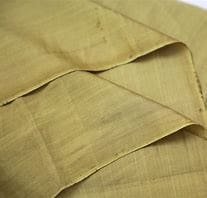Sustainable fabric alternatives are becoming increasingly popular in the fashion industry due to the negative environmental impact of fast fashion. According to Earth.org, sustainable fashion can involve sourcing and using materials that are grown and harvested in a sustainable way, produced with fewer resources with less toxic materials, and minimize the carbon footprint of a product. The fashion industry is responsible for 10% of humanity’s carbon emissions, pollutes rivers and streams, and causes water scarcity, according to the Geneva Environment Network.
One of the most significant issues in the fashion industry is fast fashion, which leads to a massive amount of textile waste. The Ethical Consumer reported that 85% of all textiles end up in landfills. As a result, sustainable fashion designers are increasingly focusing on environmentally friendly and ethical practices.

Sustainable fabric alternatives can include using natural fibres such as organic cotton, linen, hemp, and bamboo. Additionally, sustainable fashion designers prioritize using organically-grown fabrics and less toxic chemicals in processes, such as azo-free or natural dyes. Blue sign and OEKO-TEX certification can indicate to consumers that their sustainable clothing underwent post-production chemical testing, meaning no toxic residue remains.
Other than the traditional natural fabrics, garments made from specialty fibres such as Lotus, Banana, and Bamboo are currently increasing in demand.
Lotus fabric, in particular, is observed to have high dimensional stability, high resistance to pilling, and a similar absorption rate to that of regenerated bamboo fabric. In fact, bamboo lotus blended fabric even shows improved spreading speed and one-way transport capability than other fabrics. The moisture management properties of regenerated bamboo are also noted to be suitable for clothing applications.

Banana fabric, on the other hand, is noted to be a sustainable and eco-friendly alternative to traditional textiles, such as cotton and silk. It is described as having a soft and silky texture, similar to that of bamboo, and is known to be durable and moisture-wicking.
Bamboo fabric, although subjected to extensive processing, can still be a luxurious and sustainable option for garments. Bamboo rayon, which is soft and absorbent, is commonly used in cloth diapers and is known to retain its softness even after washing. Bamboo fabric is also hypoallergenic and free from harmful chemicals, making it a popular choice for bedding and sleepwear.

Indian handcrafted textiles are also a sustainable and trendy fabric alternative. Indian fashion designers are increasingly using traditional crafts and techniques to create sustainable clothing. Many designers prioritize weaving, block printing, and vegetable dyeing, as well as recycling and upcycling, making their clothing unique and eco-friendly. The Indian fashion and textile sector have been a socio-economic booster for developing countries in the last two decades, and Indian fashion designers have always showcased Indian heritage through their textiles and crafts.
Sustainable fabric alternatives are becoming increasingly popular in the fashion industry due to the negative environmental impact of fast fashion. Sustainable fashion designers prioritize environmentally friendly and ethical practices, including using natural fibres and less toxic chemicals. Indian handcrafted textiles are also a sustainable and trendy fabric alternative, and many Indian fashion designers are incorporating traditional crafts and techniques into their clothing. As the fashion industry continues to evolve, sustainable fabric alternatives are sure to play an increasingly important role.

